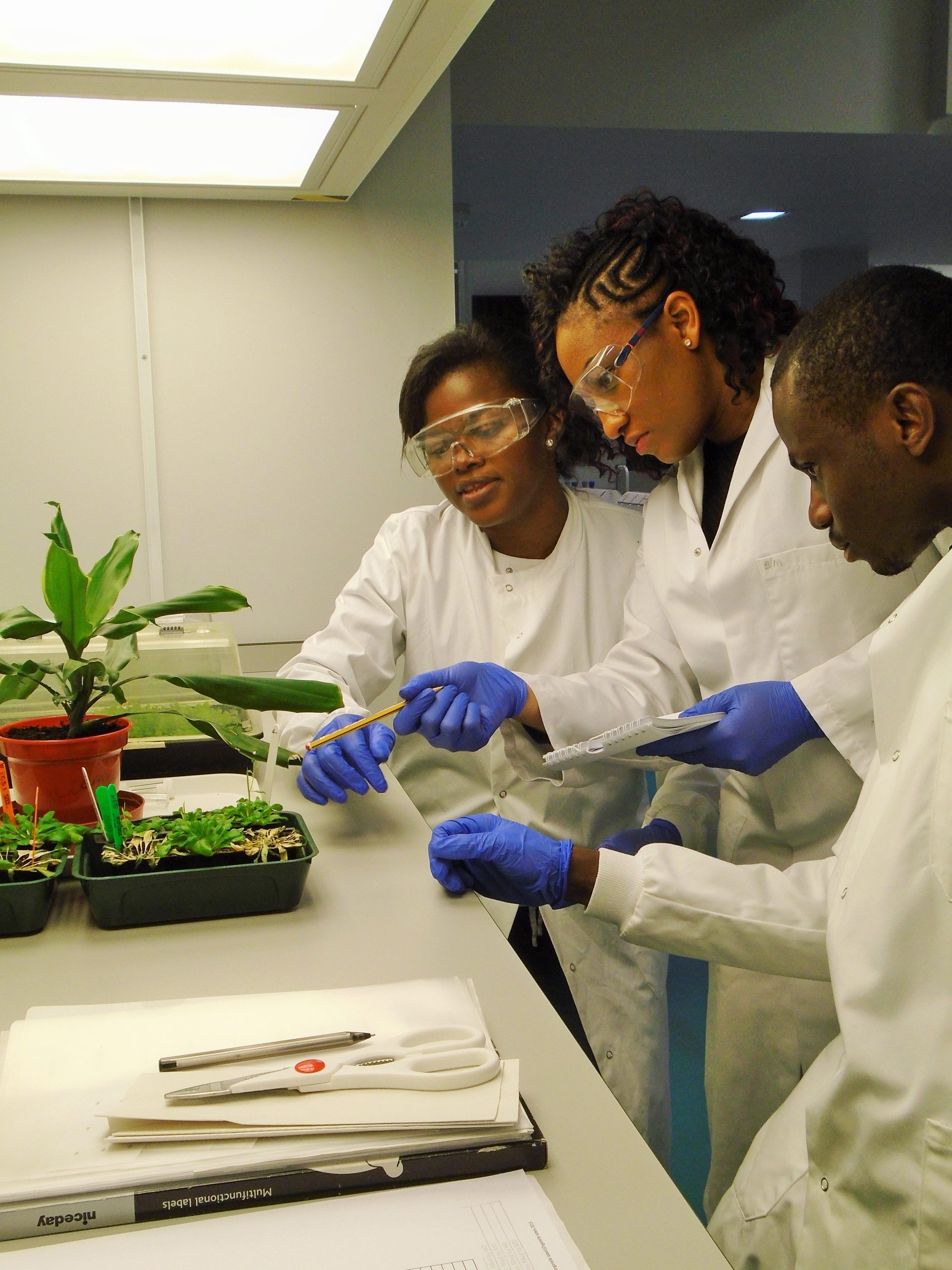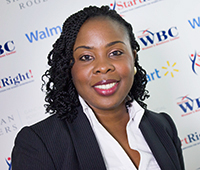
Carol Ibe's not-for-profit to hold scientific training workshop for Africa-based agricultural scientists & academics.
I believe that training and empowering Africa’s next generation of agricultural scientists and bioscience industry leaders is key to advancing scientific research and innovation, which can contribute to food security in the continent.
Carol Ibe
A not-for-profit organisation set up by a Gates Cambridge Scholar is holding a flagship training workshop for agricultural scientists and lecturers from African universities in Cambridge this autumn.
Carol Ibe [2015], who is doing a PhD in Plant Sciences, set up the JR Biotek Foundation before starting her PhD. Its first workshop was held in 2014 in Nigeria. The organisation aims to enhance scientific research and STEM-based education in sub-Saharan Africa.
It has just launched its Scientific Laboratory Training Workshop 2016 to be held in partnership with the Department of Plant Sciences at the University of Cambridge from 5th-12th September 2016. The Scientific Laboratory Training workshop, led by lecturers, postdoctoral researchers and graduate students from the Department of Plant Sciences, is an eight-day event designed to provide selected agricultural scientists and lecturers from universities in Africa with a solid foundation in modern scientific concepts and cutting-edge research techniques utilised in the field of agricultural research.
The training workshop will begin with a keynote lecture by Professor Sir David Baulcombe, Head of the Department of Plant Sciences at the University of Cambridge, who has made key discoveries in the field of RNA function and epigenetics. His keynote lecture will address “The role of agricultural research in enhancing food security in sub-Saharan Africa between now and 2050.”
On the last day of the workshop, JR Biotek Foundation will hold a roundtable discussion event aiming to discuss ‘the key role of research and innovation in developing Africa’s agricultural sector’. The roundtable discussion event which is supported by the Gates Cambridge Trust and the Gates Scholars’ Council, will welcome delegates, research experts and industry leaders from the University of Cambridge and other universities and research institutions in the world. Speakers include Professor Mark Tester, Professor of Bioscience and Head of Research at the Centre for Desert Agriculture, KAUST, Saudi Arabia; Professor Sir Brian Heap, CBE FRS, President, European Academies Science Advisory Council; Professor Dale Sanders, Director and Chief Executive of the John Innes Centre in Norwich; Professor John Pickett, Michael Elliott Distinguished Research Fellow at Rothamsted Research; and Professor Adam Price, Director and Research Head at the University of Aberdeen.
JR Biotek says ideal candidates for the £1,000 course will be PhD-level students, scientists and lecturers who are currently involved in agricultural research and/or teaching at undergraduate and postgraduate level. Candidates need to demonstrate a clear need to acquire new knowledge and practical experience in molecular techniques utilised in the field of agricultural research.
Carol Ibe said: "We are very excited to partner with the Department of Plant Sciences, the scientific home of famous botanists including Stephen Hales in the 18th century, Darwin’s mentor JS Henslow in the 19th century and Blackman, Tansley and Godwin in the 20th century to hold this much-needed and exciting capacity building programme. I believe that training and empowering Africa’s next generation of agricultural scientists and bioscience industry leaders is key to advancing scientific research and innovation, which can contribute to food security in the continent."
Carol's research aims to understand how both beneficial and pathogenic fungal interactions with rice, a major cereal staple in Africa, can be enhanced for practical agricultural applications.
*To learn more or to apply now, please click here or visit our website at www.jrbiotekfoundation.org.

Carol Nkechi Ibe
- Alumni
- United States
- 2015 PhD Plant Sciences
- Newnham College
I was born in the United States but grew up in Nigeria, where I completed a BS in microbiology. In pursuit of a better education and career, I returned to the US and did a master’s in molecular biology and biochemistry with a specialization in biotechnology from the Georgetown University, and subsequently, a master’s in clinical embryology from the University of Oxford. During my studies at Georgetown, I became inspired to start JR Biotek, a life science education company that provides quality biotechnology and life science education, training and laboratory capacity building programs to students, educators and scientists in Africa. My vision is to help build a powerful workforce that can advance scientific research and innovation in Africa, especially within the field of agriculture. I am also very passionate about developing more effective and practical solutions to food insecurity in sub-Saharan Africa, and this influenced my decision to study plant science. My PhD research will aim to determine the commonalities and differences during intracellular rice root colonization by both beneficial and detrimental fungi, and how these associations may be enhanced for practical agricultural applications. Rice is a major staple food in many African countries; therefore, developing rice cultivars with better adaptations to low-input rice agroecosystems is crucial for achieving food security in the continent. This is the ultimate goal of my PhD. I am deeply honored to receive the Gates Cambridge scholarship, a life changing award that would allow me to improve the lives and careers of many in Africa.
Previous Education
University of Oxford
Georgetown University












